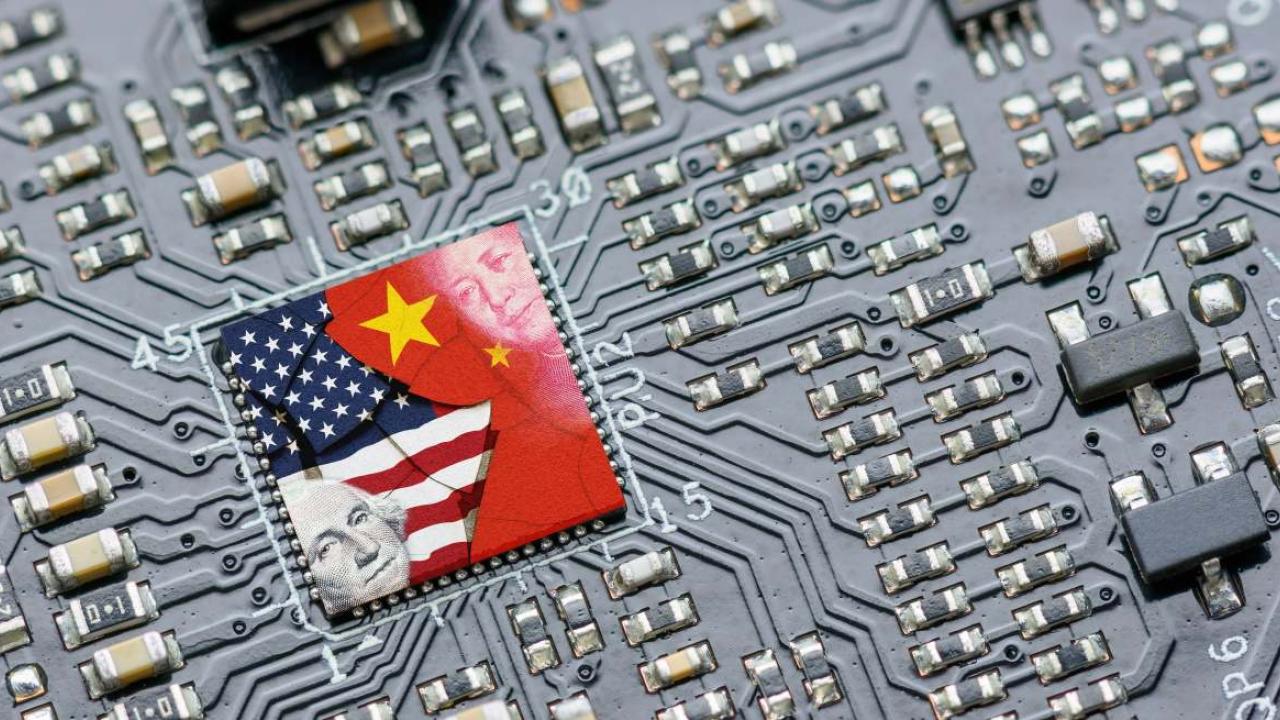
Following an escalation of tariffs, both countries announced over the weekend that they will exclude semiconductor trade from further punitive taxes, while Washington will also exclude certain electronic products, at least temporarily.
The United States and China have mutually exempted each other from tariffs on their imports of semiconductors, one of the most traded products in the world and key to the production of a wide variety of products, from phones and computers to cars and airplanes.
The China Semiconductor Industry Association (CSIA) announced Friday that American chipmakers that outsource manufacturing will be exempt from China's retaliatory tariffs on U.S.-sourced products.
Meanwhile, on Friday, U.S. Customs and Border Protection issued a rule exempting semiconductors from some tariffs. It also excluded other products such as smartphones, computers, modems, routers, and USB flash drives.
In 2024, the United States exported $57.548 billion worth of semiconductors to the world, while China's external sales of these products were $208.165 billion, according to data from the World Trade Organization (WTO).
Statistics from the U.S. Department of Commerce show that in their bilateral semiconductor trade in 2024, U.S. exports were $9.778 billion and Chinese exports were $2.076 billion.
But The New York Times reported that the exemptions do not provide complete relief. Other tariffs will continue to apply to electronics and smartphones. The Trump administration imposed a 20% tariff on Chinese goods earlier this year over what the administration said was the country's role in the fentanyl trade. And the administration could still end up raising tariffs on semiconductors.
So any relief for the electronics industry could be short-lived, considering the Trump administration is preparing another national security-related trade investigation into semiconductors.
This will also apply to some derivative products, such as electronics, since many semiconductors enter the United States inside other devices, according to a person familiar with the matter who told The New York Times. These investigations have already led to additional investigations.
Both powers have escalated the tariffs they impose on each other as part of a historic trade war and accusations of unfair and illegitimate trade practices.
China announced on Friday that it would impose a 125% tariff on all U.S. imports, which it began implementing on April 12. This measure was taken in response to Trump's additional 145% tariff on the country, announced on Thursday, April 10.
“The intermittent increase in abnormally high tariffs by the United States on China has become a numbers game, with no practical economic significance, and will become a joke in the history of the world economy,” a Ministry of Commerce spokesperson said in a statement announcing the countermeasure. “However, if the United States insists on continuing to substantially harm China’s interests, China will resolutely counterattack and fight to the bitter end.”
China's Ministry of Commerce said it was filing another complaint with the World Trade Organization over the increased US tariffs.
"Since there is no longer any possibility of market acceptance for US products exported to China under the current tariff levels, if the US continues to impose tariffs on Chinese products exported to the US in the future, China will ignore it," the statement said.
EXEMPTION IS TEMPORARY: U.S.
Regarding the tariff exemption on US imports of certain Chinese electronics and semiconductors unveiled Friday night, the White House assured this Sunday that it was a temporary exception and that they would be included in "another category" (tariff).
"All of those (electronic) products are going to fall under the category of semiconductors and will have a special type of tariff to ensure that those products are relocated. We need to have semiconductors, we need to have chips, and we need to have flat-panel displays—we need to have these things made in the United States," said Howard Lutnick, U.S. Secretary of Commerce, in a television interview on ABC.
He stated that the exemption was temporary and that the products excluded for now would be included "in one or two months" in a special package of semiconductor levies.
Hours later, President Donald Trump confirmed Lutnick's statement and stated that the products would be included in another basket.
“No one is ‘free’ from the unfair trade imbalances and non-monetary tariff barriers other countries have used against us, especially China, who treats us the worst by far! No tariff ‘exception’ was announced on Friday,” Trump posted on his Truth Social network.
Hours earlier, on Saturday night, Trump had told reporters aboard Air Force One that he would speak further about tariff treatment of semiconductors and electronics on Monday, adding, "We're going to be very specific."
Trump has also left the door open to imposing selective tariffs on the pharmaceutical industry, claiming it is another strategic sector for the US economy.
After the US announced that its punitive tariffs on China would reach 145%, China's Ministry of Commerce said the intermittent tariff increases had become a numbers game, "without practical economic significance, and would become a joke in the history of the world economy."










